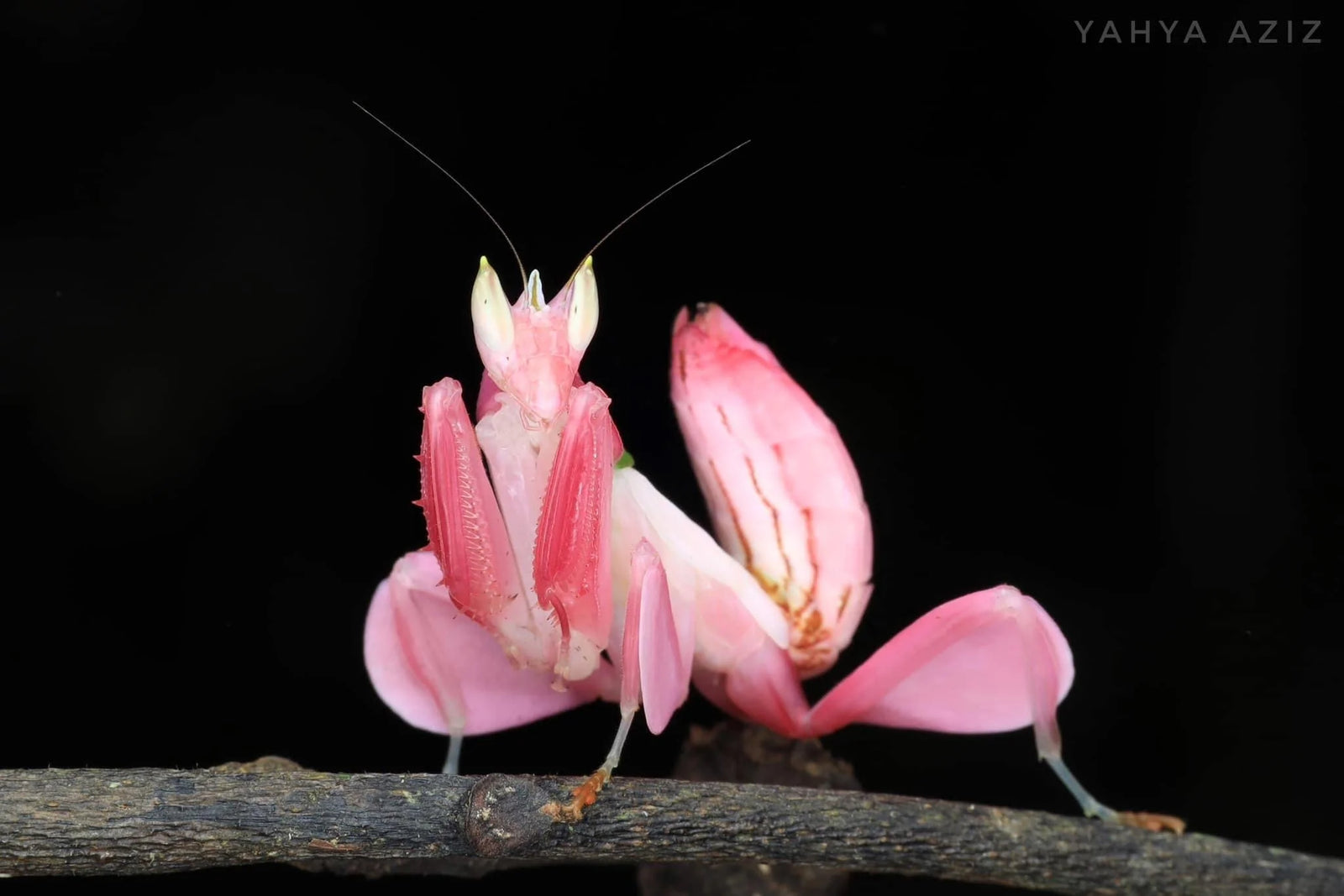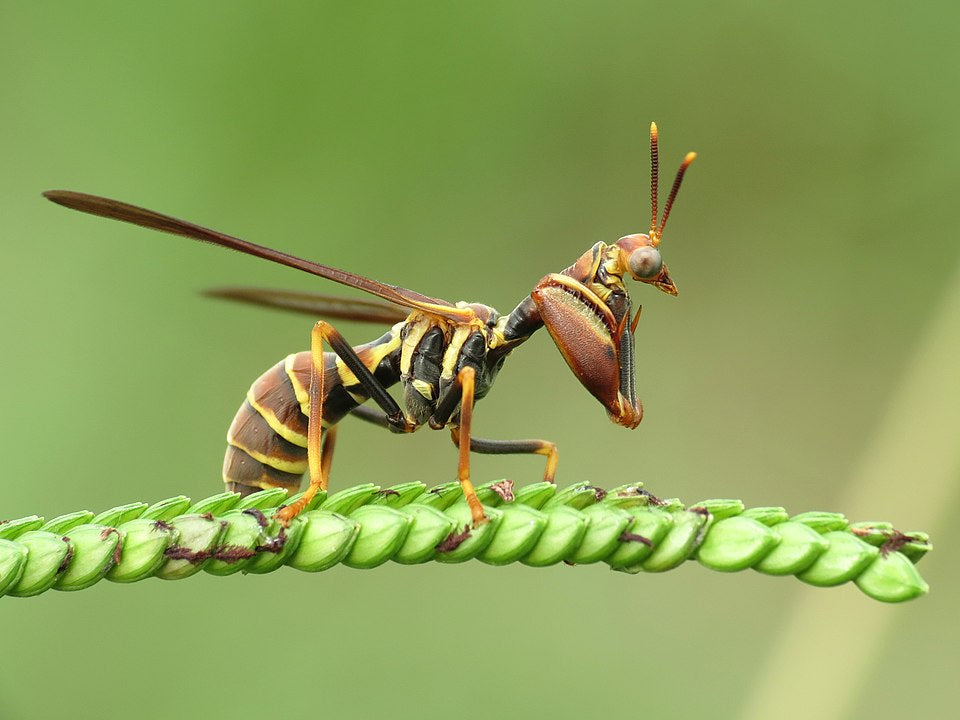Menu
-
- Home
- Contact
- Search
-
Shop
- Live Feeder Insects
-
Supplies
- Habitats
- Feeders
- Feeders and Microfauna Breeding Supplies
- Bioactive Kits
- Bioactive Supplies
- Containers
- Insect Culture Cups
- Insect Culturing Cups and Lids
- Classroom Projects
- Live Air Plants bioactive
- Substrates
- Lighting and Heating
- Cages, Habitats, Bug Boxes, Vivariums, Insectariums
- Bark
- Shipping supplies, Heat packs, cold packs, containers
- Bio-Active
- Plants
- Mantis Gallery
- Usmantis Reviews
- Praying Mantis
- Mantis
- Praying Mantis eggs ootheca for pest control
- BioActive Supplies
- Beneficial Insects
- Help Videos
- Top 5 Praying mantis as pets,
- Blog
-
Shop By Family
- Praying Mantis
- Care Sheets
- Track Order
- Live Feeder Insects
- Wholesale prices for bulk orders
- FAQ
- Galleries of Mantis Videos
-
- Home
- Search
- About us
- Shipping
- Refund Policy
- Track Orders
- Contact us
- Blog
- Beneficial Insects
- Sitemap
- Reviews
-
Film production resources
- Wholesale
- FAQ
- Login
-
English

What do you feed your Mantis? How often? How much?
November 01, 2017 3 min read
Mantids are insectavours. They eat insects primarily pollinators such as flies, moths, bees etc.. Using commercially raised feeders (flies) from USDA approved farms or clean home made cultures assure good nutrition and clean uncontaminated food.
There are many other feeders people use. Crickets, roaches, and worms of different types.
Captive mantids health depends on your understanding of nutritional needs and what is safe food . Using commercially raised feeders from USDA approved farms assure clean uncontaminated food.
It is not recommended to use wild caught food as they are contaminated with pesticides and feed on some pollin that can be naturally toxic. Most communities spray for mosquitoes. The chemical used is poisonous and dangerous for Mantis. Wild Pollinators feed on natural toxic plants such as Foxglove (Digitalis extremely poisonous). There are regions where it’s poisonous affects makes even local honey dangerous to eat for humans.
Crickets, worms, and roaches. Many people use these and I’ll give you some facts. Crickets, mealworms and roaches have a thick exoskeleton made of ‘chitin” Mantids do not digest this easily as it has a strong gluey paste-like composition. Insects with thick exoskeletons also shed them and will hold bacteria even if raised in a clean environment. Food and feces particles trapped between the plates or sheds will fester and can even contain botulism. Some feeders such as crickets and mealworms are raised for the reptile trade and gutloaded or given feed that is unhealthy for Mantids. Crickets bite! As well as some other feeders. Even a tiny bite will kill a Mantis
The standard for success are USDA farm raised organic flies or cultures made from them at home.
Note: there are many successful breeders and keepers who use other insects as feeders and know which Mantis species tolerate roaches etc better than others. They also have a standard of cleanliness for thier feeder. “The standard with using flies as suggested will minimize health issues” I am frequently contacted with people who’s Mantis is suddenly sick and dying often fed other than flies just prior.
How much and how often should Mantis be fed? Naturally mantids evolved for feast and famine. Hatching flies in nature happen in mass to ensure thier reproduction. Mantids and other animals will gorge on them. Adversely, drought, heat waves and cold periods cause food scarcity for weeks even months.
This said you can feed often and a lot. It becomes too much when the feeders cause stress or a dirty habitat for your Mantis. Especially with nymphs, they run around in panic like ways caused by too many feeders or crowding. A Mantis can survive for as many as 6 weeks without food. This of course would be cruel if you left them without for such a long period, but important to know. Don’t panic if your feeding schedule may be upset while your feeding cultures regenerate and hatch or while your delivery make take a week or so.
Note: Water should be always available. Misting several times daily in a well ventilated habitat is necessary.
Can my Mantis eat a frog, bird, mouse? No! If your curious that’s natural, however there is no reason too. Firstly your Mantis will get injured and die. It is also a cruel act and I feel strongly about those who focus on the “kill”. Enjoying watching your Mantis hunt eat and be healthy is nice, but there is absolutely no room for sadistic satisfaction or obsession with the killing. If this is what you like but a poisonous snake and sleep with it!
Supplements, honey and junk food. Honey is sugar and of no nutritional value especially to Mantids. Some misconception about it confuses people. I read “Give it to your Mantis when sick or injured” and “It’s a natural antibacterial” or “My Mantis loves it”. Pay attention here, Mantids will eat Pooh if you put some on you finger and offer it! Don’t be confused, Mantids are Insectivors and eat pollinators. They may in the wild eat things like pollen or other things likely for the moisture. Likely honey will gum up a Mantis digestive tract, can contain toxins especially natural unprocessed, and even dry like “Fly paper glue” later wondering why it’s sick or dead.
Leave a comment
Comments will be approved before showing up.
Also in Praying Mantis News! Join the conversation.

orchid mantis evolutionary research
June 06, 2025 2 min read
The orchid mantis (Hymenopus coronatus) transitions from black-and-red to pink-white coloration during development, a shift driven by the Redboy pigment transporter. This transition serves different ecological functions: red coloration helps hatchlings mimic stink bugs for predator avoidance, while the pink-white coloration of older nymphs provides floral camouflage for both predator avoidance and prey attraction. The Redboy transporter, upregulated by ecdysone, facilitates this shift by exporting red pigments in early stages and importing white pigments in later stages.
Evolutionary Basis:
Redboy's Role:
The Redboy transporter, a novel ABCG transporter, arose by gene family expansion and positive selection, specifically to handle the transition from red to white coloration, according to research on Nature.
Hormonal Regulation:
The hormone ecdysone regulates Redboy, ensuring the pigment transition happens at the appropriate developmental stage, according to research on ResearchGate.
Genetic Adaptation:
The evolutionary changes in Redboy have allowed orchid mantises to adapt their body color to different life stages and ecological niches.
Ecological Functions:
Aposematic Mimicry (Hatchlings):
The initial black-and-red coloration serves as a warning signal, mimicking the appearance of stink bugs, which are known to be distasteful or toxic to predators.
Camouflage (Older Nymphs):
The pink-white coloration provides floral camouflage, helping the mantis blend in with flowers and avoid detection by predators.
Prey Attraction:
The flower-like appearance also attracts unsuspecting prey, such as small insects, to their location, enhancing the mantis's hunting success.
In summary, the orchid mantis's body color transition is a fascinating example of ontogenetic camouflage and adaptive evolution, where the color changes throughout the mantis's life serve distinct ecological roles in where the color changes throughout the mantis's life serve distinct ecological roles in predator avoidance and prey attraction.
Read More

Mantis fly Mantispidae, very special insect
October 15, 2024 3 min read
Mantispidae, they don’t sting! 

Recent Articles
-
orchid mantis evolutionary research
June 06, 2025
-
New Yorker article 1955 Mantis Man
March 09, 2025
-
Mantis fly Mantispidae, very special insect
October 15, 2024
-
Do insects have feelings? Love or Hate? What’s your opinion
September 09, 2024
-
How Praying Mantises Hear: One ear
July 19, 2024
-
Identifying Domestic species
July 19, 2024
-
Invasive claims and irresponsible advice
April 13, 2024
-
Is it time for insect researchers to consider their subjects’ welfare?
April 08, 2024
-
My Awesome Summer by P. Mantis Children’s book
April 07, 2024
-
Toxodera
April 06, 2024
Categories
- animal husbandry
- best feeders
- best mantis for pest control
- breeding praying mantis
- buy praying mantis
- Cannabis
- crickets
- discussion
- dormitory pet
- Drosophila
- education
- egg
- entomology
- fertility
- flightless fruit flies
- Flower mantis
- Friendly Bugs For Cannabis
- fruit fly culture
- geometric morphometrics
- Ghost mantis
- happy experience with pets
- Hydei
- Hymenopodidae
- Hymenopus coronatus
- invasive
- keeping insects alive
- Lucky mantis
- Major League baseball Perez Kisses Lucky Mantis!
- make money
- mantis for dummies
- mantis ooth
- Mantodea
- melanogaster
- mimicry
- mismolt
- new species
- ooth
- ooth care
- ootheca
- P paradoxa
- pest
- Pest control
- pet nutrition
- praying mantis
- praying mantis care
- praying mantis for sale
- reptile feeders
- School project
- scientific research
- Sexing praying mantis
- Shipping
- signalling
- stem
- stenophylla
- Store news
- stress from shipping
- usmantis
- we buy mantis
Menu Title
This section doesn’t currently include any content. Add content to this section using the sidebar.
Subscribe
Sign up to get the latest on sales, new releases and more …
Invalid Password
Enter